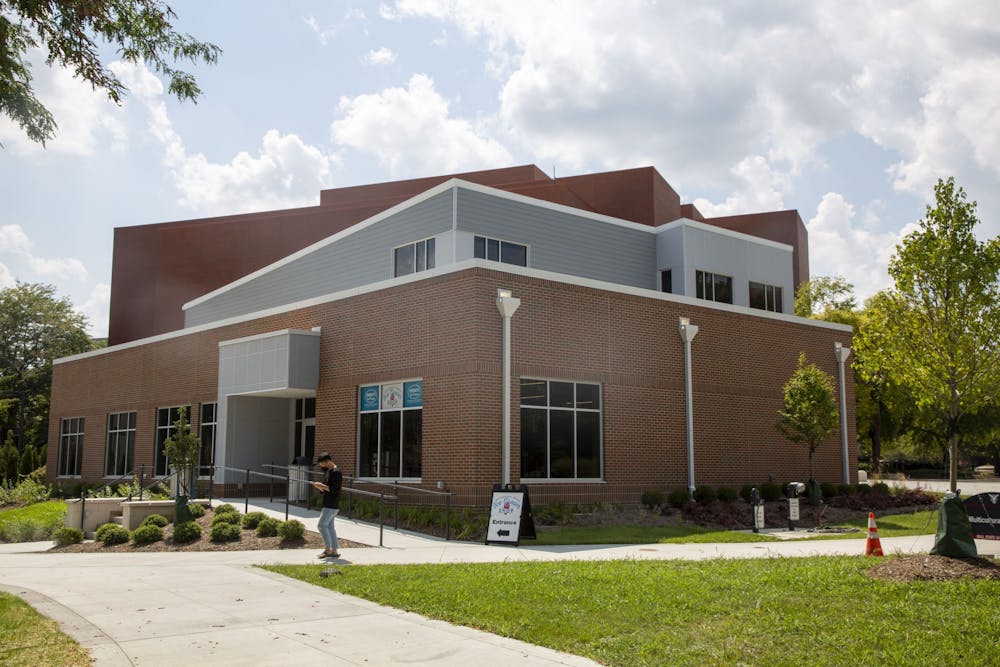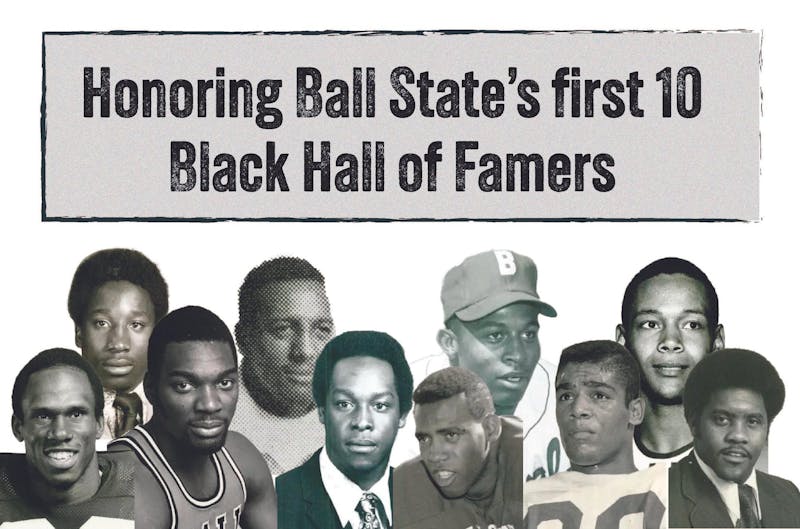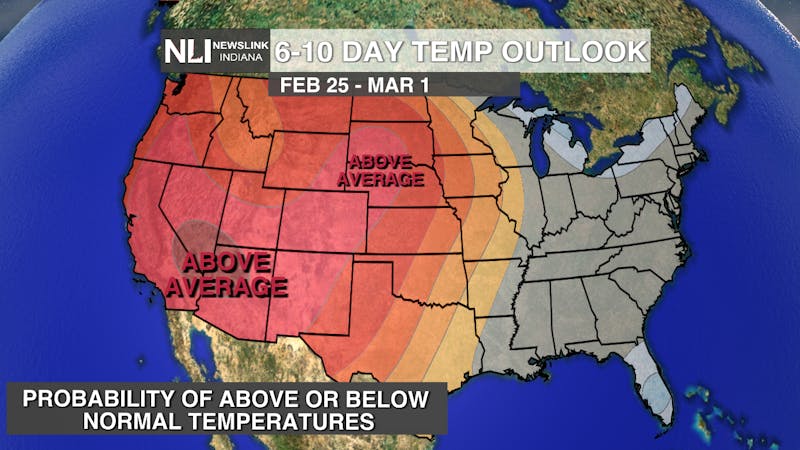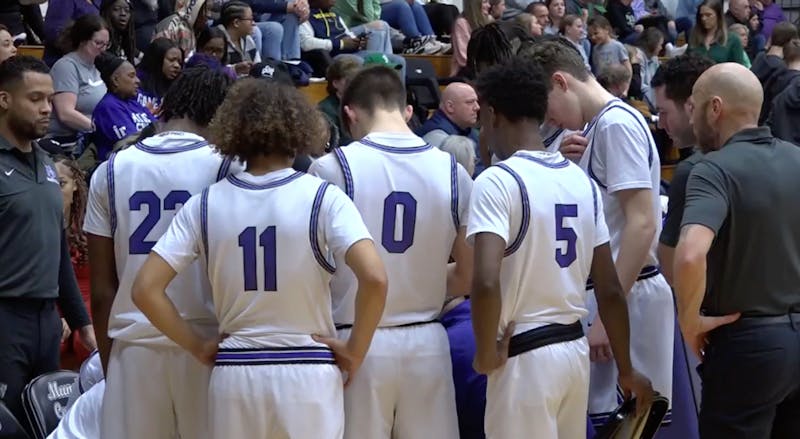Ball State alumnus Vivian V. Conley worked as a domestic laborer in the early 1960s — amid the thicket of segregation — bringing her teen daughter, Myrna Robertson, with her. The 40-something-year-old was cleaning houses a couple of blocks from Ball State’s campus when Robertson remembers her mother telling her, “One of these years, I’m coming to Ball State as a student.”
At the time, Robertson shrugged it off, knowing that her mother had yet to receive her GED.
However, at age 66, Conley graduated from the university with a bachelor’s degree in political science in 1988, followed by a master’s degree in gerontology.
Now, the university’s multicultural center will be renamed in honor of her and Hurley C. Goodall Jr., a testament that “people have dreams and ambitions, and sometimes, they do come true,” Robertson reflected.
The honor was officially approved at Ball State’s December 2024 Board of Trustees committee meeting, with the families of the late Muncie natives in attendance to bear witness to the honor.
The center — dedicated to“help[ing] students of color on campus and educat[ing] the campus community about diversity,” according to its website — has been Ball State’s “cornerstone of inclusiveness” since its 1968 construction, according to a press release from the university.
During the motion hearing, board member and Ball State alumni Henry Hall said the multicultural center was “shuttled away” when it was first built.
“It was a place where a lot of people who looked like me found refuge,” Hall said.
Hall credited University President Geoffrey Mearns’ efforts to make the university cornerstone more central to campus and accessible to students, including the 2019 reconstruction of the building.
Vice President of Student Affairs Ro-Anne Royer Engle began working at Ball State in 2019 when the multicultural center was under reconstruction and relocation to become a centralized campus destination.
“President Mearns asked me to explore the naming of the multicultural center because of requests from alumni and community members,” Engle said.
When exploring possible namesake honorees, Engle said the significance of Conley and Goodall’s contributions to the Muncie community and their dedication to Ball State reflected the purpose of the multicultural center — a sentiment echoed by many alumni and community members pleased with her selection.
“We couldn’t have two more worthy names on the multicultural center,” Hall said.
Conley served the Muncie community as a staunch advocate of education and social justice until her death in 1993. Robertson said Conley was a single mother who raised six children and extended her motherly love to Muncie’s community members, earning the affectionate nickname “Muncie’s Mother Teresa” by those who crossed paths with her.
Robertson said her mother had so much love to give, which dispelled any hint of jealousy among her children when it came to sharing their mother’s generosity with the world.
“We knew that was Mom's faith in God sending her to be a servant,” Robertson said.

Vivian V. Conley, pictured here, was a civil rights activist in Muncie, Indiana, at the forefront of many community issues relating to education, civil, and elderly rights. A ceremony recognizing honorees for the Coalition of Women’s Organizations 2022 Women's Equality Day celebration is scheduled for August 28, 2023, with each honoree recieving a Vivian V. Conley Certificate. (WaTasha Barnes Griffin)
Having reaped the benefit of higher education later in life and feeling compelled to make the same opportunities available to everyone, Conley was an active member of the community and championed the importance of education.
“We all knew education was important for what we wanted and needed in life,” Robertson said, “She instilled that into us, [and] then it was passed down to the grandchildren and great-grandchildren.”
Despite having the value of education ingrained in her from a young age, Robertson said she did not pursue higher education, a decision that did not disappoint her mother.
“Mom always listened to what God envisioned [for] her, put in her heart. She never criticized anything. She always said, ‘Well, OK, let's give it a try, and let’s see what happens.’ She always let us go our direction,” Robertson said.
Realizing her daughter did not want to go to college prompted another avenue of Conley’s advocacy.
“It came into her mind that we still need to educate kids on how to make a living because we have to make a place for them in our society,” Robertson said.
Understanding the value of earning a living firsthand, Robertson applied for jobs straight out of high school but remembered growing up in Muncie amid “high racial tensions.” Those tensions prevented her from employment time and time again.
Conley went to bat for her daughter and helped her “go her direction” toward a job she held for 18 years.
‘I owe everything to him’
Goodall led a life of service as a U.S. Army veteran, Muncie's second African-American firefighter in 1958 and served as an Indiana state representative (D-District 38) from 1978-1992.
Engle met with Goodall on more than one occasion during his 93 years of life and fondly remembers his “encouraging, courageous and community-oriented” personality.
The multicultural center offers an award named in honor of him that recognizes a full-time faculty or professional staff member who has “gone beyond the call of duty to assist the multicultural center in developing students over the past year,” according to the center’s achievement awards webpage.
Every spring, Engle said Goodall would return to the university to honor the recipient of his award.
“He was extremely generous with his time and had a commitment to the university, our students and education. Making sure he uplifted the community and gave back in important ways were things I witnessed and spoke with him about,” Engle said.
Though Hurley was generous with his time, he treated each commitment with dedication — the most important being family, such as his youngest son Fred Goodall.
“I can’t think of a dad who would have been better for me personally,” Fred said. “He was very supportive of any and everything I wanted to do. His dedication to the community and helping others shaped me greatly. I owe everything to him.”
At the forefront of Hurley’s parenting was the principle of respect, Fred said
“He always taught me and my brother that to command respect, you needed to give respect to others [and] be open to listening and working with others in order to accomplish your goals,” Fred said, adding that his dad practiced what he preached.
By putting that principle into action through his legislative work and advocacy, Fred said his dad showed his sons firsthand the great things that can come from collaboration for the benefit of an entire community when people work together, often accomplishing projects with assistance from his opponents.
“I won't even pretend to have matched his work ethic, but I try as much as I can,” Fred said.

The Delaware County Historical Society is partnering with Community Enhancement Projects to build a bronze statue of Hurley Goodall. He has been an advocate for the African American community throughout his life. Julius Anderson, Photo Provided
The campus’ multicultural center has long been a place that allows students to ask questions and educate themselves on unfamiliar cultures, inviting curiosity and the exchange of ideas between people from different backgrounds. Fred said observant curiosity was a fundamental element of his father’s character.
“He was very active in the community, and he thought it was important that we pay attention to what was going on [around us], and if we felt there was something that we could do to help make a situation better — be it lead the charge ourselves, or join others, take action,” Fred said.
Fred expressed his appreciation to the university and felt his dad would have similar thanks to give in recognition of the co-namesake honor.
“One thing that would have been gratifying to him is [to know] that after all the hard work and everything, there were people [who cared], and Ball State was able to look at his life and overall career and realize that he was worthy of having his name on the building,” Fred said.
‘It’s for other people’
Engle said she did not have the pleasure of knowing Conley personally the way she did Hurley, but Conley’s family was just as warm, enthusiastic and thankful for the honor as the Goodall family.
Religion was an important aspect of Conley’s life and the forefront of her generosity. She attended church regularly with her children, and Robertson fondly recalled the two of them analyzing sermons from Rev. Williams routinely after Sunday church. One of their favorites was titled, “How So Go Your Journey?”
Robertson said the sermon focused on the idea that “the journey you’re on is not necessarily for you, it's for other people.”
When she received word that her mother’s name had been chosen alongside Hurley’s for Ball State’s Multicultural Center, she said the sermon rang in her heart, as tears welled in her eyes.
“I thought, ‘How so go Mama's journey?’ When Ms. Engle called me, I thought, her journey isn't over. This was still in her journey,” Robertson said.
Contact Katherine Hill via email at katherine.hill@bsu.edu.





The Daily News welcomes thoughtful discussion on all of our stories, but please keep comments civil and on-topic. Read our full guidelines here.